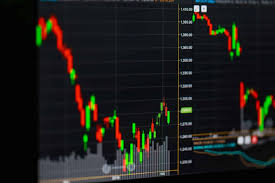
Online Forex trading has grown exponentially over the past decade. As more people become interested in investing and seeking financial freedom, the foreign exchange market has emerged as a popular choice. This article will delve into the essentials of online Forex trading, providing insights into strategies, effective practices, and the crucial aspect of choosing the right platform, such as online forex trading South Africa Brokers.
What is Forex Trading?
Forex trading, or foreign exchange trading, refers to the process of buying and selling currencies in pairs, such as EUR/USD or GBP/JPY. The Forex market is the largest financial market in the world, with a daily trading volume exceeding $6 trillion. This market operates 24 hours a day, five days a week, and allows traders to speculate on the price movements of currencies. Unlike traditional stock markets, Forex trading does not have a centralized exchange; rather, it takes place through a network of banks, financial institutions, brokers, and individual traders.
Benefits of Online Forex Trading
- Accessibility: Online Forex trading is accessible to anyone with an internet connection. Many brokers offer platforms that can be accessed from various devices, including desktops, laptops, and smartphones.
- Leverage: Forex trading allows traders to use leverage, meaning they can control a larger position than their initial investment. This can amplify potential profits but also increases risks.
- Liquidity: The Forex market is highly liquid, meaning traders can easily enter and exit positions without significantly impacting the market price.
- Variety of Trading Opportunities: With numerous currency pairs to choose from, traders have a wide array of trading opportunities based on various economic indicators and news events.
- 24/5 Market: The Forex market operates around the clock, allowing traders to participate at their convenience, regardless of their time zone.
Getting Started with Online Forex Trading

Before entering the world of Forex trading, it’s essential to follow a structured approach that involves several key steps:
1. Educate Yourself
Understanding the basic concepts and terminologies of Forex trading is crucial. Familiarize yourself with terms like pips, spreads, and leverage. Numerous online resources, webinars, and courses can help you enhance your knowledge.
2. Choose a Reliable Broker
Selecting the right broker is vital for successful Forex trading. Look for a broker regulated by a reputable authority to ensure your funds’ safety. South Africa Brokers can provide competitive spreads and good customer services. Read reviews and compare different brokers to find the one that meets your needs.
3. Create a Trading Plan
Having a disciplined trading plan is essential for success. Your plan should include your trading goals, risk tolerance, and strategies for entering and exiting trades. Stick to your plan to avoid emotional trading decisions.
4. Start with a Demo Account
Before risking real money, practice your trading skills on a demo account. This allows you to familiarize yourself with the trading platform and test different strategies without financial risk.
5. Keep a Trading Journal
Tracking your trades and maintaining a trading journal can help you identify patterns in your performance. Documenting your trades provides valuable insights and helps you make necessary adjustments to your strategy.
Effective Trading Strategies

Several trading strategies can be employed to maximize success in Forex trading. Here are a few popular methods:
1. Day Trading
Day trading involves buying and selling currency pairs within the same trading day. Traders aim to profit from short-term price fluctuations by holding positions for a few minutes to hours. This strategy requires a good understanding of market trends and quick decision-making skills.
2. Swing Trading
Unlike day trading, swing trading aims to capture price movements over several days or weeks. Traders using this strategy typically look for trends and patterns in price charts, placing trades based on technical analysis.
3. Scalping
Scalping is a high-frequency trading strategy where traders attempt to secure small profits from tiny price changes. This method often involves executing many trades within a short period, requiring a fast trading platform and a reliable broker.
4. Trend Following
This strategy focuses on identifying and following market trends. Traders using this approach enter positions in the direction of the prevailing trend, hoping to capitalize on extended price movements.
Risk Management in Forex Trading
While Forex trading offers various opportunities, it also carries significant risks. Effective risk management is essential to protect your capital and maintain long-term success. Here are some critical aspects to consider:
1. Use Stop-Loss Orders
Stop-loss orders automatically close your trade when the market reaches a specified price, preventing further losses. Using stop-loss orders is vital to managing your risk and protecting your investment.
2. Never Risk More Than You Can Afford to Lose
Establish a clear risk tolerance and never risk more than a small percentage of your trading capital on a single trade. This approach helps prevent significant losses from derailing your trading journey.
3. Diversification
Diversifying your portfolio by trading multiple currency pairs can help mitigate risks. Spreading your investments across different assets reduces the impact of a single poor-performing trade.
Conclusion
Online Forex trading presents a wealth of opportunities for those willing to invest the time and effort to learn. By educating yourself, choosing the right broker, and implementing effective strategies and risk management techniques, you can increase your chances of success. Remember to stay disciplined and keep learning as the Forex market continues to evolve.





